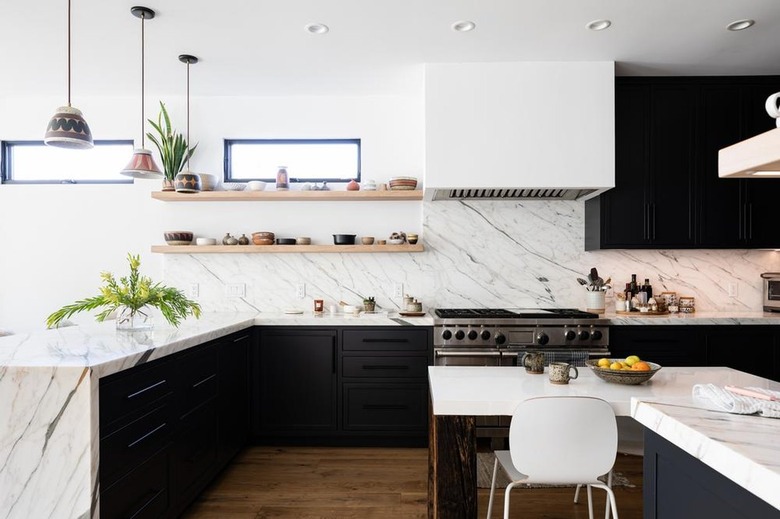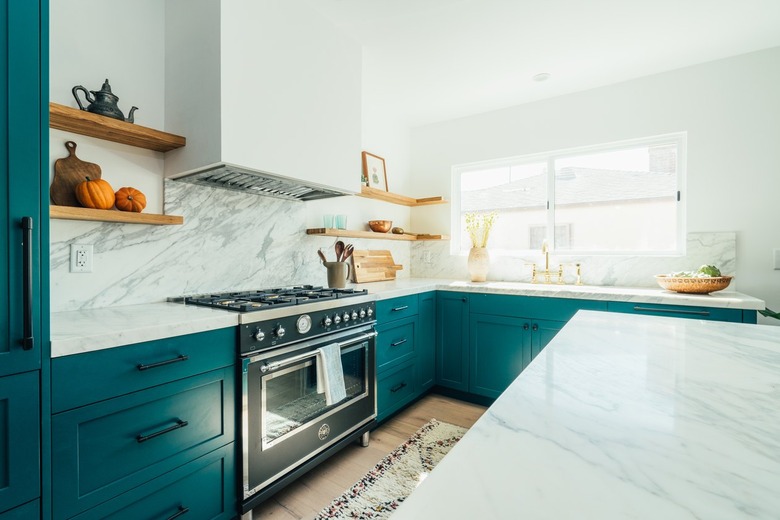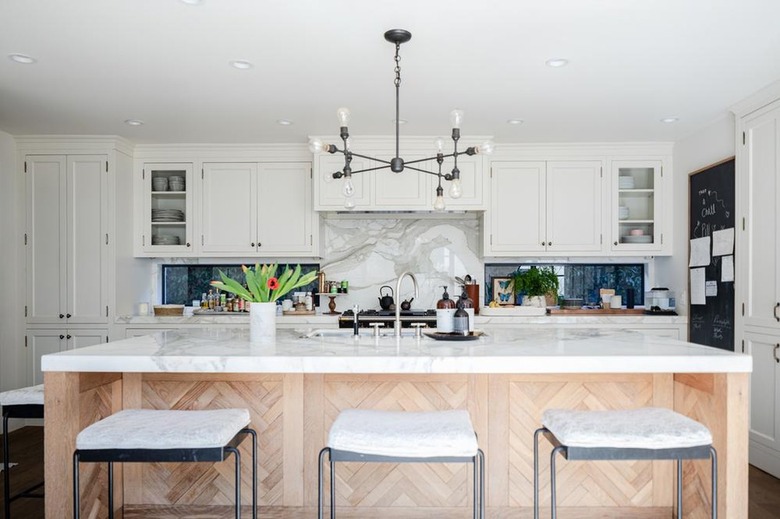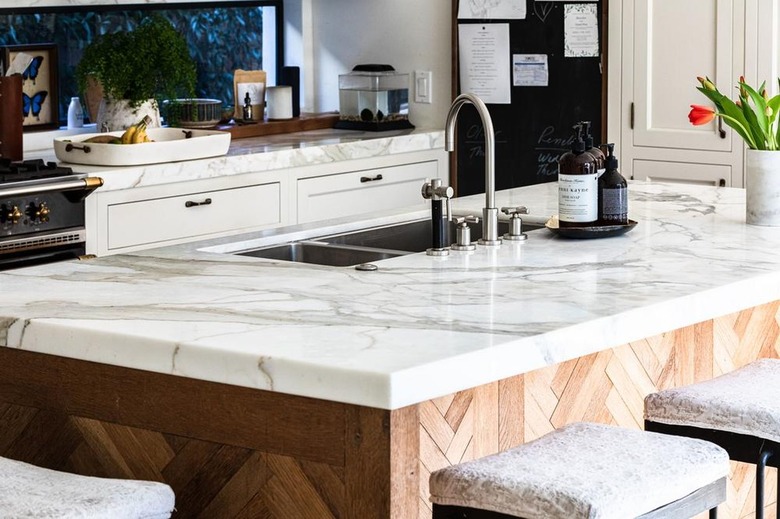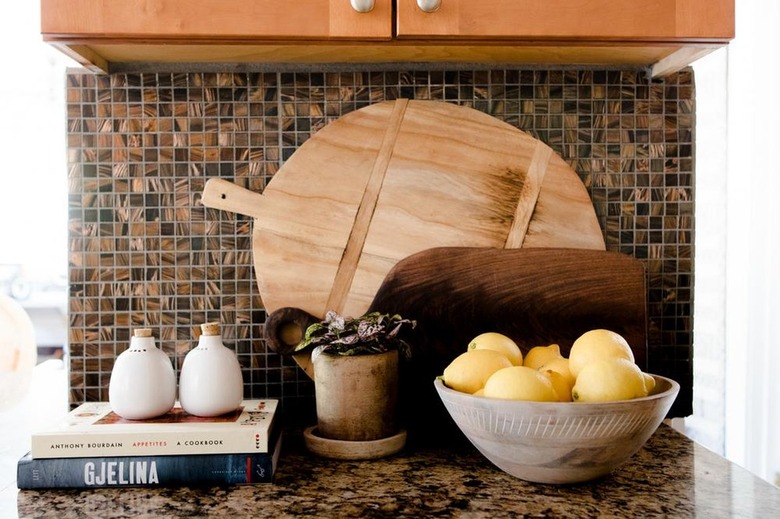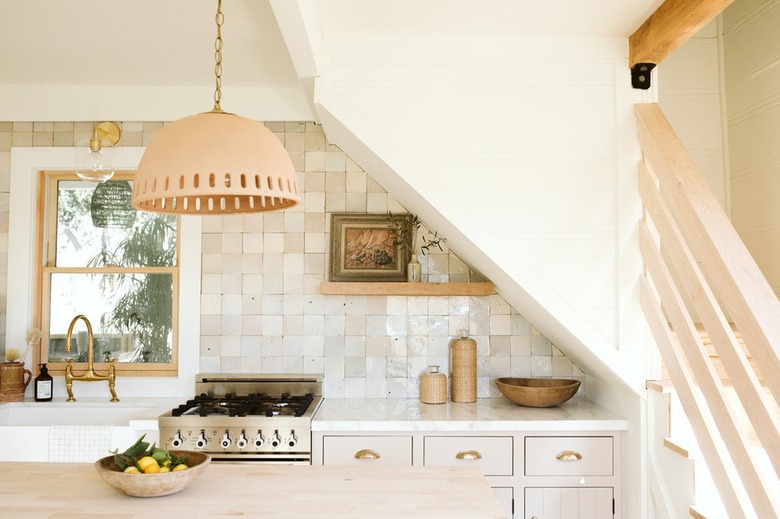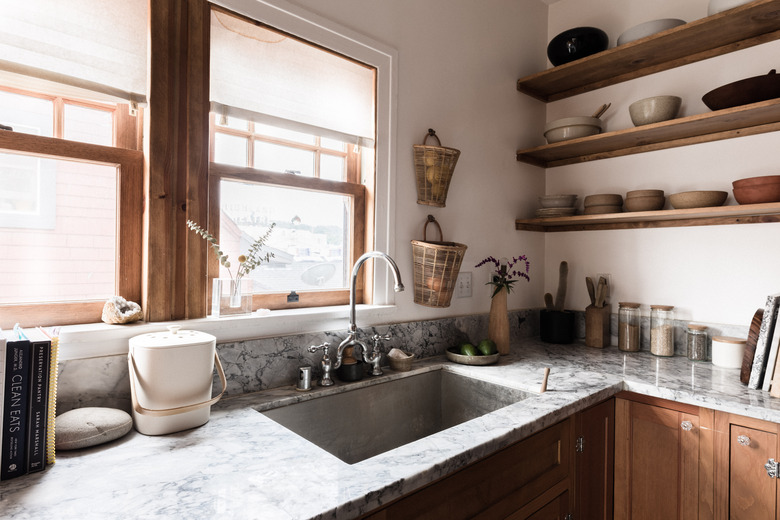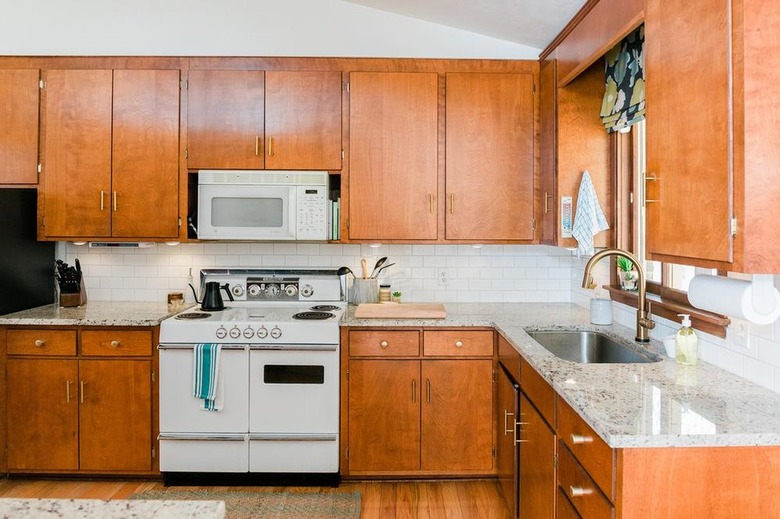Marble Vs. Granite Countertops: Which Is Better? Pros And Cons
We may receive a commission on purchases made from links.
When it comes to popular countertop materials for bathroom and kitchen remodels homeowners often ask themselves about the difference between marble and granite counters. Is there one that should take preference over the other? How do you choose between the variety of colors? Which one is most suited to the kitchen, the bathroom, or even outdoors? We're here to answer those questions.
To start, while both are natural stones, there are distinctions to take note of. Ready for all of the details? Consider this your ultimate guide to marble vs. granite natural stone countertops.
Marble vs. Granite: Appearance
Marble vs. Granite: Appearance
Granite and marble slabs are similar in appearance. In fact, it can sometimes be hard to tell them apart. To determine the difference, you'll need to look at the color, veining, and pattern variations between the two. Granite tone variants generally appear as flecks throughout the stone while marble features colorful veins that swirl throughout the porous stone.
Marble vs. Granite: Durability
Marble vs. Granite: Durability
Granite and marble are both formed via natural processes that impact the overall strength and durability of each material. And because of this, there is a way to test each stone's resilience and resulting resale value. Enter the Mohs scale of mineral hardness — a qualitative ordinal scale that characterizes scratch resistance.
Granite has a hardness of six to seven on the Mohs scale, whereas its counterpart falls behind with a hardness ranging from three to five. The former easily deflects scratches and damage from hot pots as well as scuffs and discoloration from acidic liquids like lemon juice and tomato sauce, making it a popular choice for kitchen countertops. Marble, however, lacks those stain-resistant qualities and could suffer damage from hot pans and more. It is potentially better suited to kitchen islands (but always use a cutting board!) bathroom countertops, and other low-traffic areas.
Costs Between Marble and Granite Countertops
Costs Between Marble and Granite Countertops
According to Fixr, granite countertop prices are slightly lower than those of similar marble options. The former can cost anywhere between $40 and $200 per square foot on average, with a few slabs costing up to $400 per square foot. For a 30-square-foot counter, the average material cost is around $1,000 to $1,500.
Material costs for the latter are higher, starting at around $60 per square foot. So for a marble counter of the same size, expect to pay between $1,800 and $3,000. You will also need to consider the cost of sink cutouts, edging, backsplashes, and labor.
Installation Costs
Granite countertop options can cost from $75 per square foot to $175 per square foot for installation. Marble can top $200.The complexity of the job, the number of seams and corners, and the style of sink you select for the kitchen design will have an impact on the price, too. We recommend getting at least three written estimates from contractors to find the best price in your area.
Maintenance & Repairs
The majority of stone countertops require some effort and resealing to keep them in tip-top shape, and granite and marble are no exception. You may even need to consider a daily, weekly, and monthly care routine.
Out of the two materials, granite requires less maintenance. You can simply wipe it down with a sponge and hot water on a daily basis, using a specific granite cleaner every so often to keep it fresh. Specialized polish will also help keep it shiny in the long term. Colored or white marble can be a little more involved. You'll typically need to seal it on a yearly basis, use trivets for pans to increase heat resistance, avoid acidic materials, and clean up any spills quickly to avoid staining or undesirable patina. A soft sponge and hot water should do the trick, along with a very durable stone cleaner.
And what if your surface does gets damaged? While unlikely if you're careful with them, both marble and granite countertops can scratch, crack, or chip. For both, repairs are possible and will be cheaper than replacing the countertop.
Which is Right For You: Granite or Marble
Which is Right For You: Granite or Marble
Only you can decide whether marble or granite countertops are right for you. Both can be very durable and look stunning (the color variations and veining alone make each option worthwhile), but we'll go over the pros and cons to help with your final decision.
Pros and Cons of Marble
Pros:
- The look is unmatched and can work with multiple decor styles.
- It's a naturally occurring material.
- If well-maintained, marble can increase your home's property value.
- In the right conditions and with the right care, marble is extremely long-lasting.
- No marble countertop is exactly the same, so you'll have a truly unique additon.
Cons:
- Marble can be incredibly expensive.
- It's an incredibly heavy material.
- Marble countertops stain easily.
- Marble can be delicate.
- The material can degrade over time if not sealed.
Pros and Cons of Granite
Pros:
- Granite is super durable. It's less likely to scratch, stain, or break.
- It's heat resistant.
- It's available in thousands of different colors.
- The patterns on granite tend to look incredibly intricate.
- This is another natural material, and each slab is unique.
Cons:
- Some consider this material to be incredibly trendy, so it could fall out of fashion.
- It has the potential to crack under heavy stress or if it is improperly installed.
- Granite can become porous if it's not sealed.
- High-end granite can still be very costly.
Where to Shop for Marble and Granite Counters
Where to Shop for Marble and Granite Counters
Looking to purchase marble or granite countertops for your home? Try these suppliers.
Modul Marble
